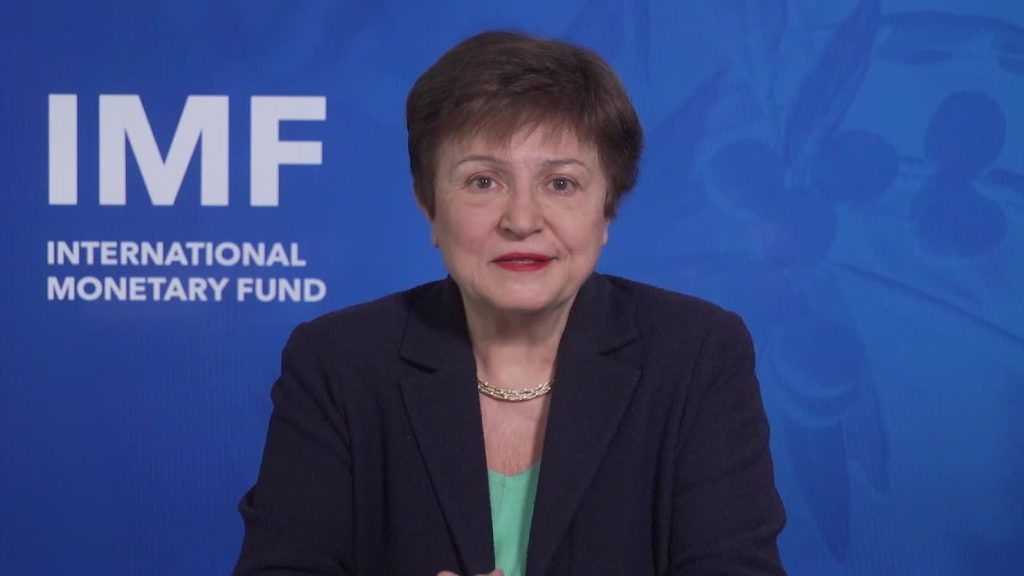Fund issues rare rebuke to UK warning against pursuing Kwasi Kwarteng’s tax-slashing agenda
The International Monetary Fund (IMF) issued a rare warning to a G7 economy on Tuesday when it called on Liz Truss’s new administration to “re-evaluate” Kwasi Kwarteng’s tax-slashing, heavy-borrowing “mini-Budget”.
The chancellor outlined his plans for driving economic growth by scrapping £45bn in tax to Parliament on Friday 23 September – a strategy that proved not to include accompanying spending cuts or even a cost estimate from the Office for Budget Responsibility – only for the value of the pound to go crashing to an all-time low against the US dollar the following Monday morning.
Amid a storm of criticism denouncing Mr Kwarteng’s “reckless gambling”, the Bank of England duly stepped in to reassure the markets it would “not raise interest rate to rein in inflation prompting panicked British mortgage lenders to withdraw hundreds of offers.
Threadneedle Street has since announced its intention to buy up government bonds to restore stability.
In between those two statements, the IMF released one of its own.
“Given elevated inflation pressures in many countries, including the UK, we do not recommend large and untargeted fiscal packages at this juncture, as it is important that fiscal policy does not work at cross purposes to monetary policy.
“Furthermore, the nature of the UK measures will likely increase inequality.”
Economist Nouriel Roubini, nicknamed “Dr Doom” due to his frequent pessimistic predictions, had already taken to social media to say that British investments were trading “like an emerging market”, that the country was on a path leading back in time to the bad old days of the 1970s and would eventually need to “go and beg for an IMF bailout”.

The IMF was founded after the Bretton Woods Conference of July 1944 towards the end of the Second World War to act as a global financial watchdog.
It is tasked with managing the global regime of exchange rates and international payments between nations, with the ultimate goal of promoting sustainable growth, improved living standards and reductions in poverty.
However, since the collapse of fixed exchange rates in 1973, the institution has taken on a more active role to intervene in struggling economies from Indonesia to Argentina, Brazil and Mexico, most recently doing so in Greece, Iceland, Portugal and Ireland during the European sovereign debt crisis of 2010 and then again in the global Covid-19 pandemic.
As the Council of Foreign Relations explain “The IMF is akin to a credit union that permits its membership access to a common pool of resources — funds that represent the financial commitment or quota contributed by each nation, relative to its size.
“In theory, members with balance-of-payments trouble seek recourse with the IMF to buy time to rectify their economic policies and restore economic growth.”
The fund has the power to issue loans to its struggling member states, of which there are 190, at its discretion.
These bailouts are given on the understanding that conditions imposed by the IMF will be met, with the intention of returning that government’s finances to a more stable footing.
A country typically calls on the fund in its capacity as a financial firefighter when it can no longer bankroll imports or service its debt to creditors.
The IMF then extends the government in question a loan and agrees a debt-repayment schedule, much as a high street lender would with a customer.
In return, the nation concerned implements the reforms requested, which will have been designed to rectify its balance and to restore foreign exchange reserves to its central bank, its Treasury effectively temporarily relinquishing control over the economy in order to pursue the IMF’s policy prescriptions.
These are designed to guarantee the repayment of the loan and dictate how the money granted is spent.

(AP)
The more assertive IMF seen in recent decades has attracted its fair share of criticism over the way it goes about its business, however, the Nobel Prize-winning economist, arguing in his book Globalization and its Discontents (2002) that the fund had repeatedly failed in its efforts to lift the world’s poorest countries out of poverty and that the conditions of its loans, such as implementing austerity programmes, high interest rates, liberalization and privatization initiatives, have often proven too draconian and ultimately counterproductive.
In some instances, indebted countries have preferred of late to take loans from friendly foreign governments rather than the IMF as a means of sidestepping its condition-based approach and retaining greater autonomy.
Pakistan, for instance, preferred to do this in 2018, going to China, Saudi Arabia and the UAE for financial assistance before it sat down to negotiations with the fund.
The UK, which became a member of the fund on 27 December 1945, has actually been forced to appeal to the IMF for a loan once before.
This occurred in 1976 under Jim Callaghan’s Labour government, which sought £3.6bn when the pound again tumbled against the dollar amid runaway inflation.
The request was one of the largest ever received by the IMF at the time but was granted on the condition that the UK cut its spending and balanced the books.
Source: Independent Uk
Send us news updates and adverts to admin@hitzafrikradio.org

